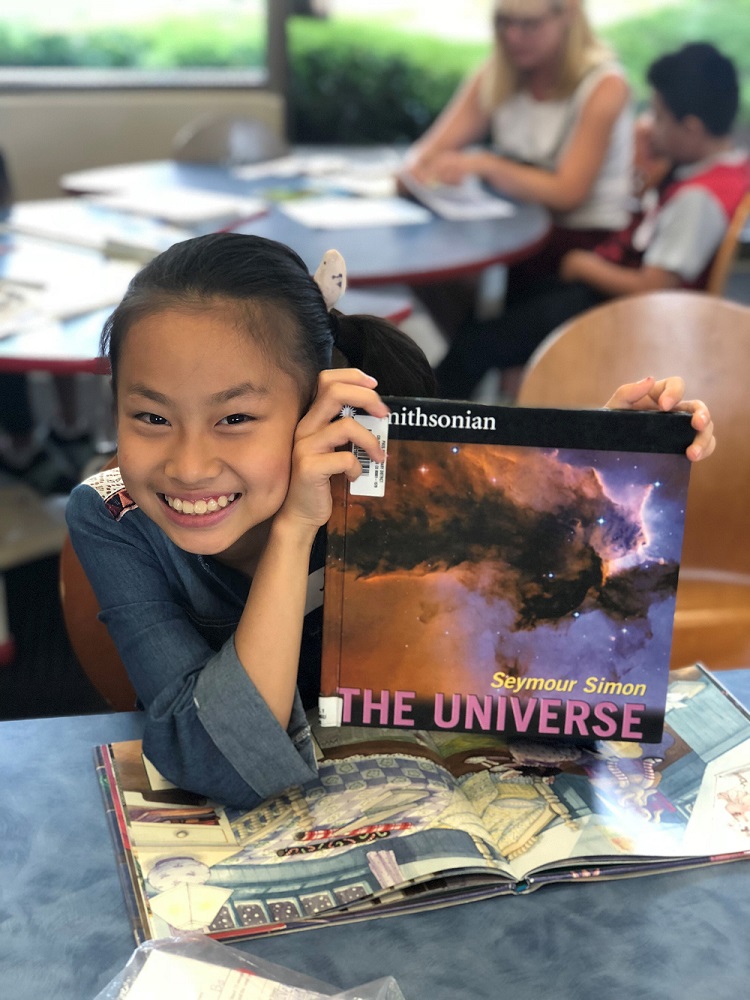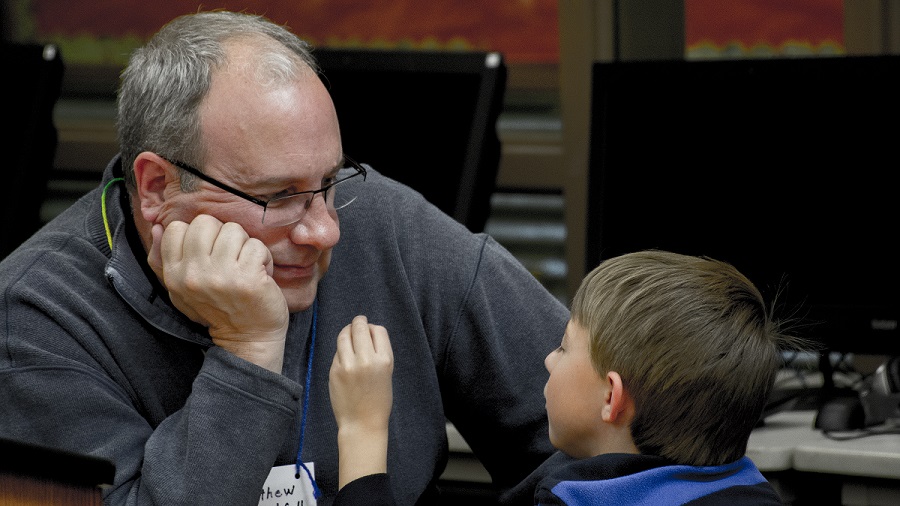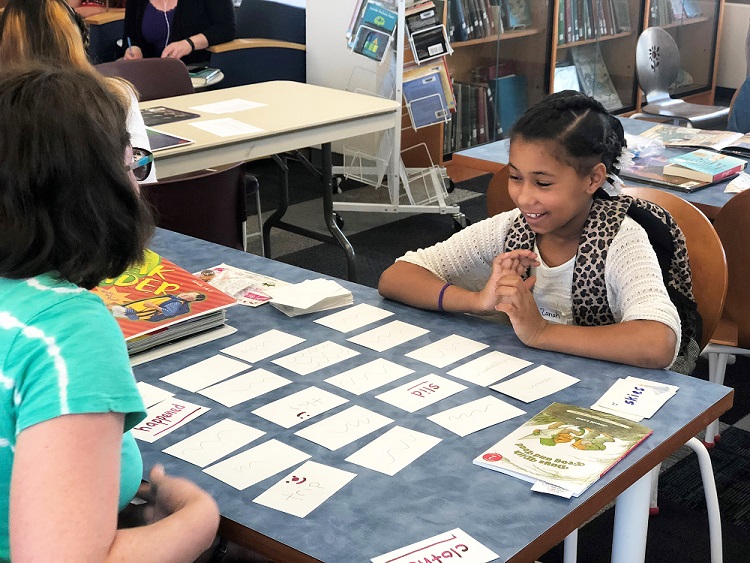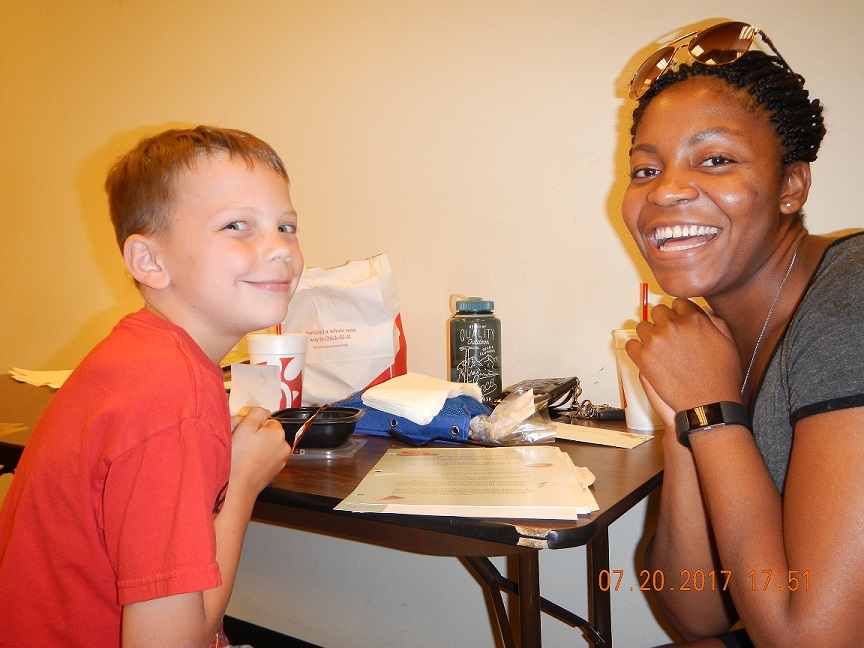
Children’s Literacy Center (CLC): Increasing Literacy, Improving Self-Esteem
The Children’s Literacy Center (CLC) is working hard to ensure that Colorado children are reading at grade level. That’s because reading is the key to learning and getting ahead in life. We are always ready to get behind projects that increase literacy, especially in communities suffering from low literacy rates. So, when CLC applied to us for one of our small grants, we were ready and willing to help. We spoke to Children’s Literacy Center Development Director Ann Sulley to find out more.
Kars4Kids: What are some of the reasons “neurotypical” kids read below grade level?
Ann Sulley: There are a variety of reasons why kids read below grade level:
- A lack of books at home at an early age and no one reading to them.
- Normal development process
- Frequent relocation
- Home trauma
Kars4Kids: How does one-on-one tutoring help bring kids up to speed with their reading?
Ann Sulley: CLC tutors provide one-to-one tutoring, increasing the likelihood of children reaching a higher reading level while improving children’s self-esteem. Tutors meet with their tutee for one hour twice a week for twelve weeks to work through lessons in the Peak Reader. Volunteer tutors not only provide children with their undivided attention, but they also allow time for parents and/or guardians to fulfill other obligations.

Kars4Kids: Isn’t it true that if children aren’t reading by third grade, they are at risk of not completing school? At what point would a child be referred to you for help? What are the ages of the children enrolled in the Children’s Literacy Center?
Ann Sulley: There is significant research that tie third grade reading scores to incarceration rates, unemployment, and poverty. The effects of low literacy have far-reaching consequences: “Low literacy costs the U.S at least $225 billion every year in non-productivity in the workforce, crime, and loss of tax revenue due to unemployment,” according to a 2017 report by ProLiteracy. The Children’s Literacy Center serves students that have completed the first semester of first grade through the sixth grade reading level. CLC has learned that second and third grade students gain the most growth in the program as up to third grade one is learning to read and after third grade they are reading to learn.
Kars4Kids: Can you tell us a bit about the Peak Reader Curriculum?
Ann Sulley: The Peak Reader, a proven tool designed by CLC in collaboration with local and national education experts, incorporates a mountain theme as children climb to the peak of their reading abilities. Each kit contains a training video, story-based lessons, hands-on activities, plus games and writing exercises. In addition, Peak Reader kits are reusable, allowing for greater time, space and cost efficiencies, while maximizing the number of students served. Each lesson in the Peak Reader is based on a specific aspect of the English Language and is aligned with Colorado State Education Standards and National Literacy Strategies. Lessons are progressive in nature and uniform in format, providing the child with a sense of consistency from week to week.
Tutors and children meet twice a week for one hour over a twelve-week semester to work through lessons in the Peak Reader. The tutors not only provide reading exposure and guidance, but they also act as positive role models in helping each child discover the joy of reading and in the process, improving the child’s self-esteem.

Kars4Kids: Why is it so hard for some children to learn to read?
Ann Sulley: There are so many variables as to why some children struggle to read; what they are struggling with (fluency, comprehension, etc.) how far they are behind, dedication to the program (attendance and extra reading at home with a parent), learning disability, dyslexia, and etc.
Kars4Kids: Your website cites a dire statistic: 27% of Colorado third graders fail to meet state standards in reading. What is the reason for this low literacy rate?
Ann Sulley: Low literacy rates directly correlate to poverty, a lower quality of life, and fewer employment opportunities. Nearly 16,000 in Colorado are not reading at grade level and according to a recent Kids Count in Colorado, Colorado Children’s Campaign, twenty-five percent of Colorado high school students drop out, which costs society an estimated $563,000 over his or her lifetime in public subsidies and income supports. The extent to which a child can read and write proficiently by the end of third grade will set the pace for his/her future academic achievement and success.
Kars4Kids: How many volunteers do you have on staff? What’s the longest running volunteer you have? Do kids and tutors ever keep up with each other after completing the program?
Ann Sulley: In 2018, CLC’s recruited and trained 575 volunteers to facilitate the afterschool tutoring program. Our longest running volunteer has been with us since the very beginning and has volunteered for 26 years tutoring more than 50 students. CLC participants do stay in touch and many of the students return to CLC to tutor.

Kars4Kids: How long does it generally take for children to become proficient readers once enrolled in your program?
Ann Sulley: This varies from child to child as there are so many variables; how far are they behind, what are their reading challenges, are they and their parents engaged in the process, and so forth. CLC’s data does show that a 95% of the children participating in the program show improvement after the first semester. A child is permitted to stay in the program until they attain gain level.
Kars4Kids: Can you tell us about your Youth Ambassadors Program?
Ann Sulley: Children’s Literacy Center’s Youth Ambassador Program (YAP) engages high school students who are passionate about making a difference in their community. Youth Ambassadors are a critical face of Children’s Literacy Center’s premier tutoring program and are responsible for program promotion and recruitment.
Youth Ambassadors have the opportunity to enhance leadership skills and confidence as they work to create and implement a plan to promote Children’s Literacy Center’s mission within schools and communities. You can promote Children’s Literacy Center’s in whatever way works best for you, whether through word of mouth, friends, or presentations to school clubs, churches, or other groups.
Youth Ambassadors will recruit new volunteer tutors for the Children’s Literacy Center via social media outlets, school clubs, other school outlets, or any outside resources. The program will benefit participants by strengthening college resumes, as well as applying leadership skills to a job resume, along with many other benefits. Additionally, Ambassadors will have the opportunity to receive scholarships of up to $2,500.
Kars4Kids: What’s next for the Children’s Literacy Center?
Ann Sulley: CLC has just completed celebrating 25 years of providing free one-to-one tutoring to students reading below grade level for free and is looking forward too many more years. One of board and staff’s strategic plan goals is to expand to rural Colorado. CLC is very fortunate to have received a 5-year foundation grant to expand services to La Junta, CO, and is looking at expanding in the San Luis Valley and along the Highway 50 corridor.